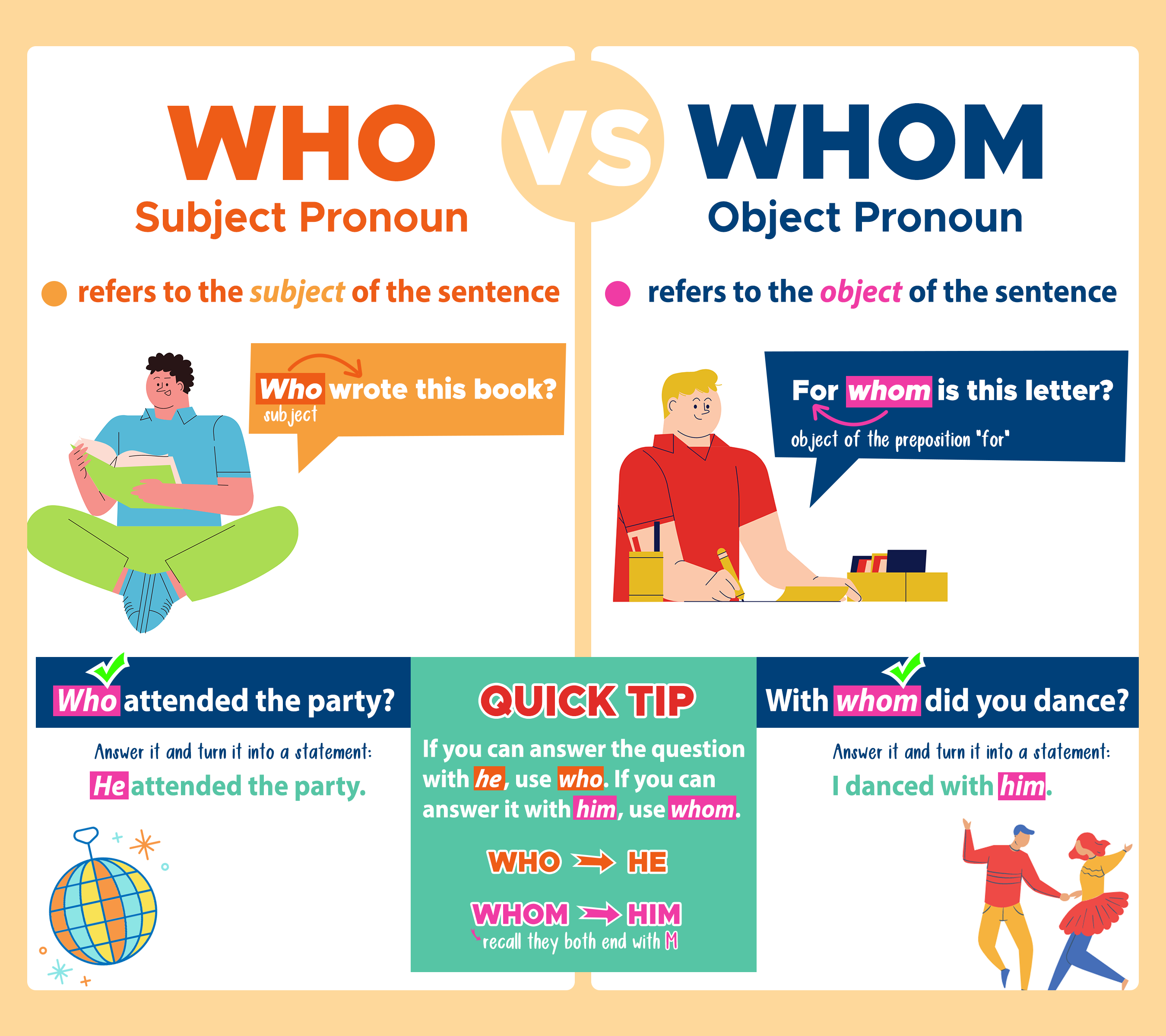When To Use Whom Or Who - As a professional, it's important to have a strong grasp of grammar and language usage. One common area of confusion for many people is the use of "whom" and "who". While they are similar in meaning, they are used in different contexts and can impact the clarity and professionalism of your communication. In this post, we'll explore the differences between "whom" and "who", when to use each, and provide some tips and examples to help clarify any confusion.
Who vs Whom: What's the Difference?
Curvebreakers

One of the main differences between "who" and "whom" is that "who" is generally used as the subject of a sentence, while "whom" is used as the object of a verb or preposition. In other words, "who" is used when referring to the person or people who are doing the action, while "whom" is used when referring to the person or people who are receiving or being affected by the action.
For example, consider the following sentence: "Who is going to the meeting?" In this case, "who" is the subject of the sentence, because it is referring to the person or people who are doing the action (going to the meeting).
On the other hand, consider this sentence: "To whom should I address this letter?" In this case, "whom" is the object of the preposition "to", because it is referring to the person who is receiving the action (addressing the letter).
It's worth noting that in informal speech or writing, many people use "who" in place of "whom", especially in situations where the correct usage is unclear or overly formal. However, in professional or academic settings, it's important to use the correct form to avoid confusion or misunderstanding.
Using Whom and Whose
English Study Here

Another common usage of "whom" is in the possessive form "whose". "Whose" is used to indicate possession or ownership, and is generally used before a noun to show that the noun belongs to someone.
For example, consider the sentence: "Whose phone is ringing?" In this case, "whose" is used to indicate that the phone belongs to someone, but the sentence doesn't specify who that person is.
The use of "whom" and "whose" can be tricky, as they are both used in contexts where possession or ownership is involved. However, "whom" is generally used as the object of a verb or preposition, while "whose" is used as a possessive pronoun.
Who vs. Whom: When to Use Whom or Who with Useful Examples
7ESL

Here are a few examples to help illustrate the correct usage of "who" and "whom":
- Who is taking the kids to school?
- Whom did you invite to the party?
- Who is responsible for this mess?
- With whom did you discuss this matter?
- Who is the new manager?
- To whom should I address my concerns?
As you can see, "who" is used when referring to the person or people doing the action (taking the kids to school, responsible for the mess, etc.), while "whom" is used when referring to the person or people receiving the action (invited to the party, discussed the matter with, etc.).
WHO vs WHOM: How to Use Who or Whom in English
Confused Words

If you're still feeling a little unsure about the usage of "who" and "whom", here are a few tips to help clarify:
- Use "who" as the subject of a sentence (who is doing the action) and "whom" as the object of a verb or preposition (who is receiving the action).
- If you're unsure whether to use "who" or "whom", try rephrasing the sentence with a subject-verb-object structure. For example, "Whom did you invite?" becomes "You invited whom?".
- In formal or professional settings, it's generally best to use "whom" when referring to the object of a verb or preposition to avoid confusion or misunderstanding.
- If you're still unsure, consult a grammar guide or ask a colleague or mentor for guidance.
By following these tips and practicing with examples, you can improve your usage of "who" and "whom" and communicate more clearly and professionally in your business or academic writing.
Find more articles about When To Use Whom Or Who